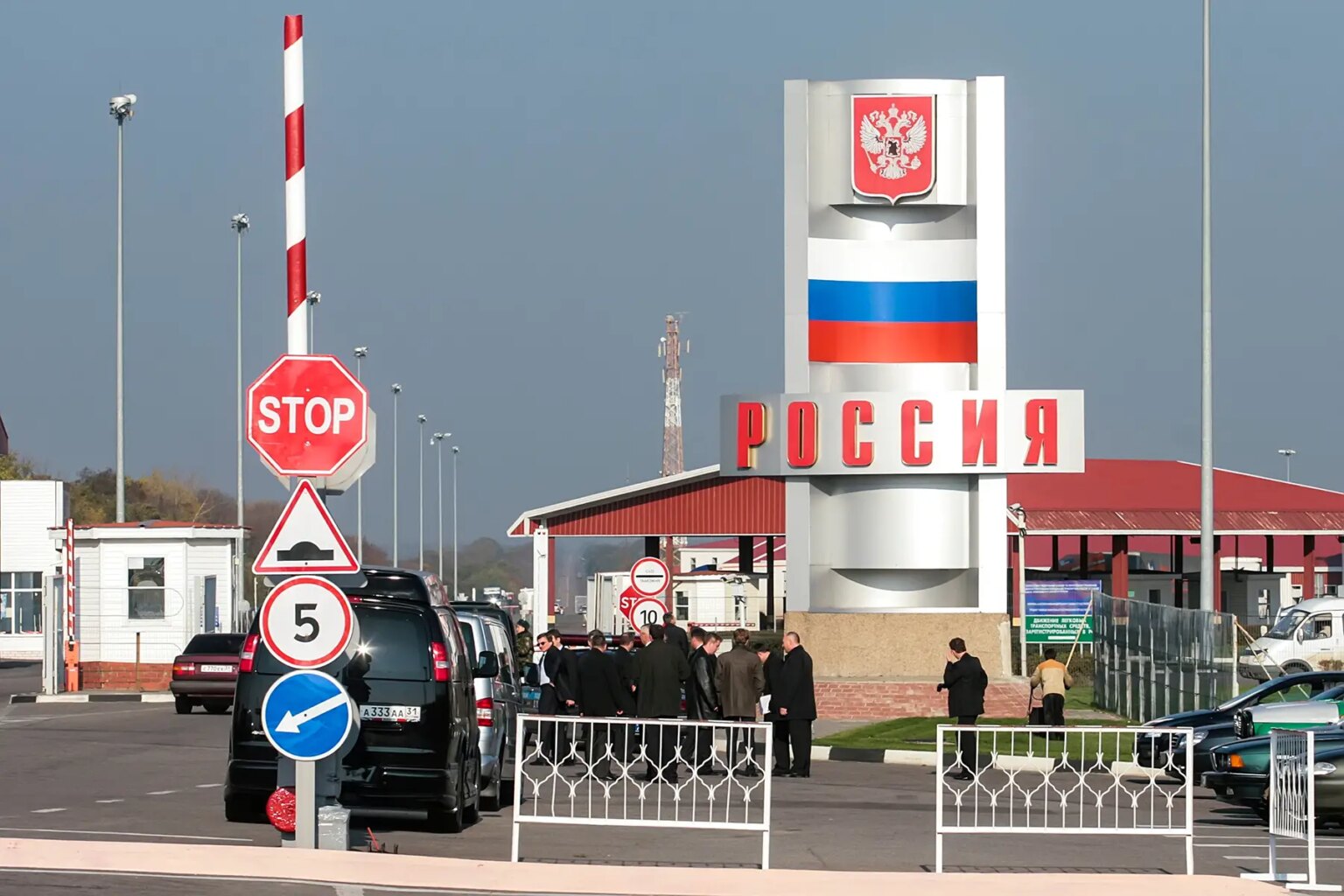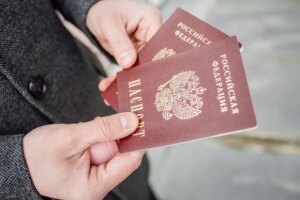Important notice from the Editor in Chief
Maintaining our Russian site is a delicate matter during the war. We have chosen to keep its content online to help our readers, but we cannot ensure that it is accurate and up to date. Our team endeavors to strike the right balance between giving information to those who need it, and respecting the gravity of the situation.
Coming to work in Russia as a foreigner is a complicated and lengthy process for most people, involving a lot of paperwork and preparation in advance. The Russian government currently has quotas on the number of foreign nationals permitted to work in Russia. These are determined annually.
Gaining a Russian work permit means following a procedure that involves both you and your employer. It is important to get this right; Russian authorities can impose heavy fines on employers for not sticking to the rules, affecting your right to remain in Russia. This guide to the Russian work permit for Indian citizens and other expatriates includes:
- Who can get a Russian work visa and permit?
- Work visa exemptions in Russia
- Coming to Russia to work as an employee
- Types of Russian work permits
- Applying for a Russian work permit and visa
- Russian work visa costs
- Work in Russia as a freelancer or self-employed person
- The Russian work visa for Indian citizens
- Volunteering and training in Russia
- Medical check-ups for expats in Russia
- Useful resources
Who can get a Russian work visa and permit?
If you’re a foreign national coming to work in Russia, you’ll need both a work permit and a work visa. However, you can only apply for a Russian work permit and visa if you have a job offer from a Russian employer who has secured an employment permit that allows them to employ foreign nationals for specific jobs.
The number of employment permits available for overseas workers is decided yearly by government quotas depending on Russia’s economic climate and government policies. Within the overall quota, there are specific quotas for regions of Russia, occupational sectors and foreign nationalities. The overall quota for 2017 has been set at 177,043, which is 17% down on the quota for 2016.
Foreign nationals that need a visa to enter Russia will need a work permit and work visa to work in Russia. See our article on Russian visas and residence permits for more information on who needs a visa to enter Russia. There are certain exemptions that are detailed below.
Nationals from the Commonwealth of Independent States (CIS), who don’t need a visa to enter Russia, are the only nationals that don’t require a Russian work permit and visa or a guaranteed job offer from a Russian employer. As of 2015, CIS nationals are no longer bound by Russian work permit quotas. Instead, they have to apply for a work patent within 30 days of arriving in Russia and then have to find employment within 60 days of receiving the work patent.
You cannot enter Russia on a visa other than a Russian work visa (e.g., business visa or tourist visa) and start working. You will need to exit the country and re-enter on a Russian work visa.
Work visa exemptions in Russia
The following groups of foreign nationals are exempt from requiring a Russian work visa or permit:
- Foreign nationals living in Russian who have already acquired a Russian permanent residence permit
- Foreign nationals working on a temporary basis for an overseas company can apply for a Business Visa, which enables workers to stay in Russia for business purposes for up to a year. More information on the Russian Business visa available in our article on Russian visas here.
- Employees of diplomatic missions or consular institutions of overseas countries in Russia, along with any private domestic employees
- Employees of foreign countries carrying out installation, servicing or repairs on installed equipment
- Journalists accredited in Russia
- Students with a valid Russian Study Visa working in holiday time or in their place of study
- Those invited to Russia for teaching positions in educational institutions
Those working in highly skilled fields can apply for a special Russian work permit for highly-skilled migrants which grants them certain concessions. More information on this below.
Coming to Russia to work as an employee
Russian work visa requirements mean that unless you are a CIS national, in order to work in Russia you will need to find a job before applying for a Russian work visa. See our guide on jobs in Russia for more information on the Russian job market.
As mentioned, Russia issues quotas on the number of foreign nationals it can employ per year. If an employer wants to hire foreign staff, they have to demonstrate that they have a need for foreign workers. This is done by filing a Declaration of Need and then applying for an employment permit from the Russian Directorate of Migratory Affairs (GUVM).
The employment permit issued to the employer will specify how many foreign staff can be employed, what nationalities they can employ and which positions can be filled. So in order to find a job in Russia, you’ll need to find an employer with a suitable employment permit. If you find an employer who doesn’t have a permit to take you on, they must apply to the GUVM for one.
Types of Russian work permits
Once you have found a job with an employer with the necessary permit, the employer will then apply to the GUVM for your work permit. The following types of Russian work permits are available:
Standard Russian Work Permit
This is the general Russian work permit for those from non-CIS countries taking up employment in Russia. It is valid for the length of the employment contract. You’ll need to renew your Russian work visa annually if the job lasts longer than a year. You will also need to secure a temporary residence permit. This is different to the Russia open work permit which is not job-specific.
Russian Work Permit for Highly Qualified Professionals
This is a special Russian work permit for those in skilled professions who gain employment with a salary of over R1 million (reduced from R2 million in 2015). The benefits of this permit are that it is usually processed within 14 days, is valid for three years and entitles relatives including spouses, children, and parents to Russian visas.
Work Patent for CIS Nationals
If you are a citizen of a CIS country that doesn’t need a visa to enter Russia, you don’t need to have either a Russian work permit or a job to enter Russia for work purposes. You need to apply for a work patent from the local GUVM office in your region within 30 days of arriving in Russia. Failure to do this can result in a fine of up to R15,000. You will then have 60 days to find employment. The work patent is valid for 12 months and is renewable once. This means that you can work outside of government quotas and your employer will not need an employment permit. To obtain a work patent, you will need to pass an exam demonstrating knowledge of Russian language, history, and legislation of the Russian Federation.
Applying for a Russian work permit and visa
Your employer will take care of acquiring the Russian work permit by applying to the GUVM. You will need to supply documents including:
- color passport photograph
- passport or valid ID
- copy of the necessary qualification certificates
- medical certificate confirming absence of diseases
- receipt for payment of fees
Once the permit has been obtained, you will receive a Russian work visa invitation from the GUVM. You need to do this at the Russian embassy or consulate in your home country. A list of Russian embassies and consulates worldwide is available here.
A copy of the Russian work visa application form is available here.
You will need to provide the following documents along with the completed Russian work visa application form:
- passport
- one passport photograph
- letter of invitation from the GUVM
- letter from employer with job details, work location and dates of contract
- medical certificate confirming absence of diseases
Employees from some countries might need to provide additional documentation. Full details of the requirements for each country is available here.
Some countries now require applicants to attend the Russian embassy or consulate in person for biometric scanning procedures. You will need to check with the Russian embassy or consulate in your country to see if this is the case.
Processing times and visa validity
The Russian work visa processing time is around 20 days although the total time from enquiring about obtaining a Russian work permit to receiving your Russian work visa can take anywhere from 3-6 months.
Once you have received your Russian work visa, you will be able to travel to Russia. All foreign entrants to Russia need to register your arrival with the local GUVM office within 7 days. This will often be done by your employer but it’s worth checking to ensure this is done. Failure to register with the GUVM can result in a fine and in some cases expulsion from Russia. A list of local GUVM branches is available here.
The Russian work visa is usually valid for 90 days, but can be extended to a year and then renewed annually after that. This will need to be done through your local GUVM branch in your region. If you are staying in Russia for longer than 90 days, you will also need to apply for a temporary residence permit through the GUVM (other than Highly Qualified Professionals who get a three-year residence permit automatically). See our article on Russian visas and residence permits for more information.
Russian work visa costs
The Russian work visa costs vary from country to country, whether the visa is single or multiple entry and whether you opt for standard or express service. Russian work visa costs for UK citizens start at £165.
There is also a charge for the Russian work permit, which is payable in Russian roubles after arrival, but this is often picked up by the employer. The cost is around R1,000.
Work in Russia as a freelancer or self-employed person
You can apply for a Russian work permit and visa to work as self-employed in Russia using the same system as for employed workers. You’ll need to apply to the GUVM for the permit yourself. You will probably need a letter of support from an individual or organization in Russia justifying the benefit of your self-employment in Russia. When applying for the Russian work visa, you will need to provide the introductory letter that would otherwise come from the employer. This applies to the Russian work visa for Indian citizens also.
If you are an entrepreneur looking to start a business in Russia that might generate revenue for the country and create jobs, you can look to do this using a Russian Business Visa rather than a Russian Work Visa. You’ll also be eligible for a residence permit if you are investing a certain amount of money into the economy.
The Russian work visa for Indian citizens
Should you wish to leave India to undergo employment in Russia you will need to arrange a Common Work Visa which allows for single entry only and is valid for up to 90 days.
Find a Russian work visa agent in Chandiagarh, India, here.
Find a Russian work visa agent in Jalandhar, India, here.
Volunteering and training in Russia
There are different Russian visas available for volunteering and training purposes. You can use the Russian Humanitarian Visa for charity trips or delivery of humanitarian aid, as well as for making visits for cultural, political, scientific, or sporting purposes. The Russian Business Visa is for both official or private business purposes, including attending training or seminars or voluntary work for private organizations.
Medical check-ups for expats in Russia
When you apply for a Russian visa, you will also need to register your fingerprints, be photographed, and undergo a medical check-up. You can either do this when you apply for your work permit or within 30 days of arrival.
The check-up might include blood tests, urine analyses, and even a chest x-ray. It costs around 4,200 – 6600 ₽ Visit our article on the healthcare system in Russia to find out more about how the process works.






